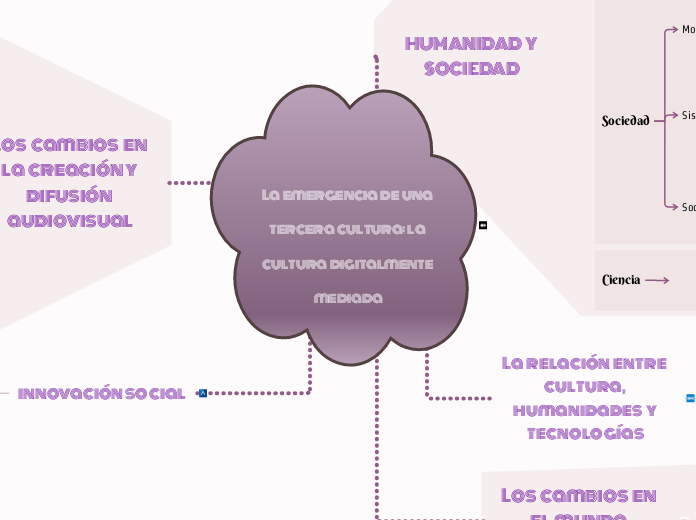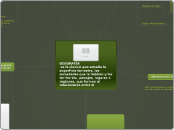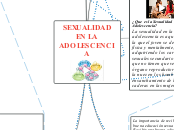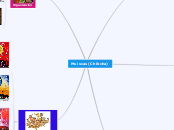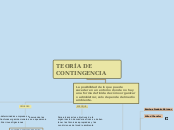La emergencia de una tercera cultura: la cultura digitalmente mediada
Tenses demonstrate the time of actions centered around the subject of the sentence. These actions are called verbs and change according to tenses.
innovación social
Los cambios en la creación y difusión audiovisual
There are four Future tenses:
- Future Simple ('with Will' and 'with Going to')
- Future Continuous
- Future Perfect Simple
- Future Perfect Continuous
Los Efectos de las Nuevas Tecnologías en otras Expresiones Artísticas
Future Perfect Simple is used for:
- an action that will continue up until a point in the future
- an action that finishes just before another time or action in the future
Some adverbs used with Past Perfect Continuous for future actions:
- for
- since
- next week
- next month
- next year
Escultura
Structure:
Subject + Won’t Have Been + Verb-ING
e.g. They won’t have been working on that project for two years next week.
Pintura
Structure:
Subject + Will Have Been + Verb-ING
e.g. They will have been working on that project for two years next week.
Nuevo Espacio Tecnológico y sus Efectos
Future Perfect Simple is used for:
- an action that will be finished by a particular time in the future
- an action that starts before and continues up to another action or time in the future
- an action that will finish before a certain time in the future, but it is not known exactly when
Adverb used with Future Continuous:
- tomorrow (e.g. tomorrow by 7)
Difusión Cultural
Structure:
Will + Subject + Have + Past Participle?
e.g. Will you have met your colleague by this time tomorrow?
Coparticipación
Structure:
Subject + Won’t Have + Past Participle
e.g. I won’t have met my friend form United States by this time tomorrow.
Creación
Structure:
Subject + Will Have + Past Participle
e.g. I will have met my friend form United States by this time tomorrow.
Nuevas Posibilidades
Future Continuous is used:
- for an action that is likely to happen in the future and continue for an expected length of time
- for an action that will be in progress at some point in the future
- for action verbs (e.g. running)
- for predictions about future events
Adverb used with Future Continuous:
- tomorrow (e.g. tomorrow at 5 o'clock)
La red permitio la creación en estos ámbitos.
Structure:
Will + Subject + Be +Verb-ING?
e.g. Will you be having fun at the party?
Financiación mediante pequeñas aportaciones de particulares interesados en un
determinado proyecto.
Type in your own examples or you can also choose from the examples below.
Form of word "to be":
Will I be being?Will you be being?Will he/she/it be being?Will we be being?Will you be being?Will they be being?
Form of word "to have":
Will I be having?Will you be having?Will he/she/it be having?Will we be having?Will you be having?Will they be having?
Desaparición
Future Simple is used:
- to predict an event in the future
- to invite
- to give orders
- to express willingness
- for actions that have not yet occurred but that will occur at a future date
Discográfica
Structure:
Subject + Will Be + Verb-ING
e.g. You will be having fun at the party.
Editoriales
'Going to' Future is used:
- to talk about our future intentions and plans
- for commands
Some adverbs used with 'Going to' Future:
- later
- tonight
- tomorrow
- next week
- next month
- next year
Se han visto seriamente afectadas por la aparición del internet.
Type in your own examples or you can also choose from the examples below.
Form of verb 'to be':
I will be beingYou will be beingHe/She/It will be beingWe will be beingYou will be beingThey will be being
Form of verb 'to have':
I will be havingYou will be havingHe/She/It will be havingWe will be havingYou will be havingThey will be having
Salas de Cine
Future Simple with 'will'' is used:
- to predict the future
- for something with absolute certainty
- when we're talking about a decision at the moment of speaking
- promises, requests, refusals, offers
- future facts
Some adverbs used with Future Simple:
- tomorrow
- next week
- next month
- next year
Interrogative form
Structure:
Will + Subject + V1(First Form of Verb)?
e.g. Will you see Mary when she comes back from Denmark?
Type in your own examples or you can also choose from the examples below.
Form of word "to be":
Will I be?Will you be?Will he/she/it be?Will we be?Will you be?Will they be?
Form of word "to have":
Will I have?Will you have?Will he/she/it have?Will we have?Will you have?Will they have?
Negative form
Structure:
Subject + Won’t (will not) + V1(First Form of Verb)
e.g. You won’t see Mary when she comes back from Denmark.
Type in your own examples or you can also choose from the examples below.
Form of word "to be":
I will not beYou will not beHe/She/It will not beWe will not beYou will not beThey will not be
Form of word "to have":
I will not haveYou will not haveHe/She/It will not haveWe will not haveYou will not haveThey will not have
Affirmative form
Structure:
Subject + Will + V1(First Form of Verb)
e.g. I will see Mary when she comes back from Denmark.
Examples
Type in your own examples or you can also choose from the examples below.
Form of verb 'to be':
I will beYou will beHe/She/It will beWe will beYou will beThey will be
Form of verb 'to have':
I will haveYou will haveHe/She/it will haveWe will haveYou will haveThey will have
Los cambios en el mundo editorial
There are four Past tenses:
- Past Simple
- Past Continuous
- Past Perfect Simple
- Past Perfect Continuous
La Extinción de los Escritores
Past Perfect Simple is used for:
- an action that began in the past and is still going on at the moment of speaking
- an action that continued before and after another action
- a change of mind
- an action happening repeatedly in the past
The Past Perfect tense is not normally used alone. It is used to denote the earlier of two past actions. We use Past Simple for the latter action.
Some adverbs used with Past Perfect Simple:
- already, before, ever, never
- once, twice, yet
- just, up to then
- for, since
Aparición de las ediciones digitales
Structure:
Subject + hadn’t (had not) + Past Participle
e.g. They hadn’t met Julia before the party.
Página web, blogs, etc.
Type in your own examples or you can also choose from the examples below.
Form of word "to be":
I had not beenYou had not beenHe/She/It had not beenWe had not beenYou had not beenThey had not been
Form of word "to have":
I had not hadYou had not hadHe/She/It had not hadWe had not hadYou had not hadThey had not had
Nuevo espacio digital
Structure:
Subject + had + Past Participle
e.g. They had already met Julia before the party.
Colección de herramientas virtuales.
Type in your own examples or you can also choose from the examples below.
Form of verb 'to be':
I had writtenYou had writtenHe/She/It had writtenWe had writtenYou had writtenThey had written
Form of verb 'to have':
I have hadYou have hadHe/She/It has hadWe have hadYou have hadThey have had
Transmisión Cultural y Cognición
Past simple expresses:
- an action that happened in the past and has no connection with the present
- an action that happened once in the past
- an action that happened regularly in the past
- an action that was true for some time in the past
- an event or action that already occurred
- an action that is finite - has both a starting and a stopping point
Some adverbs used with Past Simple:
- yesterday
- last month, last year
- ago (e.g. two days ago)
- in (e.g. in 1997)
- never, always, seldom, often, frequently, occasionally, once, twice
Herencia Autónoma.
Structure:
Did + subject + Base Form of the Verb?
e.g. Where did you meet her?
La relación entre cultura, humanidades y tecnologías
Ha puesto en el centro del debate la relación
entre cultura y nuevas tecnologías.
HUMANIDAD Y SOCIEDAD
There are four Present tenses:
- Present Simple
- Present Continuous
- Present Perfect
- Present Perfect Continuous
Ciencia
Present Perfect is used for:
- an action that occurred at a time which is indefinite and has its effect on the subject
- an action that occurred many times and has the possibility to occur in the present/future
- an action that began in the past and is still going on in the present
Some adverbs used with Present Perfect:
- just
- already
- yet
- for
- never/ever
- up to now
Revolución Tecnológica y su Tranformación
Structure:
Subject + have/ has + Past Participle (3rd Form of the Verb)
e.g. She has finished the letter.
Cambio que ha ido teniendo la sociedad al avanzar en el campo de la tecnologia y la influencia de su comportamiento.
Type in your own examples or you can also choose from the examples below.
Form of verb 'to be':
I have beenYou have beenHe/She/It has beenWe have beenYou have beenThey have been
Form of verb 'to have':
I have hadYou have hadHe/She/It has hadWe have hadYou have hadThey have had
Sociedad
Present Continuous is used to indicate the ongoing time (now).
Some adverbs used with Present Continuous:
- now, right now
- at this moment
- at the moment
- continually
- perpetually
- this year
- this season
- forever
Sociedad de Individuos
Structure:
BE + Subject + Verb-ING?
Are you eating now?
Interconectados
Type in your own examples or you can also choose from the examples below.
Form of word "to be":
Am I being?Are you being?Is he/she/it being?Are we being?Are you being?Are they being?
Form of word "to have":
Am I having?Are you having?Is he/she/it having?Are we having?Are you having?Are they having?
Transformación del sistema operativo de la sociedad.
Reconfigura el espacio cultural.
Sistema Sociotécnico
Structure:
Subject + BE not + Verb-ING
e.g. You are not eating now.
Conformado por:
Type in your own examples or you can also choose from the examples below.
Form of word "to be":
I am not beingYou are not beingHe/She/It is not beingWe are not beingYou are not beingThey are not being
Form of word "to have":
I am not havingYou are not havingHe/She/It is not havingWe are not havingYou are not havingThey are not having
La posibilidad de actividad colaborativa en red.
La movilidad de la
comunicación global digital.
Internet.
Modelo Sociotécnico
Structure:
Subject + BE (am/is/are) + Verb-ING
e.g. You are eating now.
Promueve el cumplimiento de metas y la optimización de las organizaciones
Type in your own examples or you can also choose from the examples below.
Form of verb 'to be':
I am beingYou are beingHe/She/It is beingWe are beingYou are beingThey are being
Form of verb 'to have':
I am havingYou are havingHe/She/It is havingWe are havingYou are havingThey are having
Conexiones entre cultura y negocio.
Nuevas formas de comercializar.
Cultura
Present Simple is used for:
- habits
- general truths
- repeated actions of events
- fixed arrangements/timetables
- feelings/opinions/beliefs
- instructions.
Some adverbs used with Present Simple:
- always
- usually
- seldom
- never
- sometimes
- often
- frequently, generally
- habitually, occasionally
- once, twice
Conocimiento
Structure:
Do + Subject (I, You, We, They)+ V1 (First Form of Verb)?
Does + Subject (He, She, It)+V1 (First Form of Verb)?
e.g. Where does he work?
Conexiones
Type in your own examples or choose from the examples below.
Form of word "to be":
Am I?Are youIs he/she/it?Are we?Are you?Are they?
Form of word "to have":
Have I?Have youHas he/she/it?Have we?Have youHave they?
Uso de la tecnologia y el establecimiento de conexiones con otras personas a pesar de la distancia u otros por medio de llamadas, mensajes, etc. (nuevas tecnologías)
Desarrollo Humano
Structure:
Subject (I, You, We, They) + do not / don’t + V1 (First Form of Verb)
Subject (He, She, It) + does not / doesn’t + V1 (First Form of Verb)
e.g. He doesn’t work in a bank.
Compuesta por:
Type in your own example or choose from the examples below.
Form of word "to be":
I am notYou are notHe/She/It is notYou are notWe are notThey are not
Form of word "to have":
I do not haveYou do not haveHe/She/It does not haveWe do not haveYou do not haveThey do not have
Las prácticas, capacidades, hábitos, conocimientos, que son adquiridos por el ser humano dentro de la sociedad.
Tradición Antropológica
Structure:
Subject (I, You, We, They) + V1(First Form of Verb)
e.g. I usually go jogging at weekends.
Subject (He, She, It)+ V1(First Form of Verb) + s/es
e.g. She writes every day.
Formada por:
Type in your own examples or you can also choose from the examples below.
Form of verb "to be":
I amYou areHe/she/it isWe areYou areThey are
Form of verb "to have":
I haveYou haveHe/she/it hasWe haveYou haveThey have
Un cuerpo teórico y metodológico, compuesto por conceptos, experiencias y prácticas etnográficas en un contexto histórico y social.
